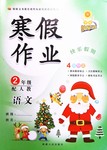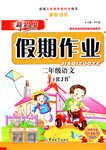题目内容
Bored? Lonely? Out of condition?
Why not try the SPORT CENTER?
TENNIS
Indoor and outdoor courts. Coaching from beginners to advanced, everyday not evenings.
Children only-Sat. mornings.
SKIING
Dry slopes—3 levels instructors at weekends and Fridays. Daytime parcitice. 8 years upwards.
SWIMMING
2 pools- heated Olympic length. Tuition available.
Women: Tuesday and Thursday.
Men: Monday, Wednesday and Friday.
Children: Saturday
Family day: Sunday
GOLF
9 hole practice course. Professional Coaching. Lessons must be booked in advance in daytime. Evening practice. Minimum age — 9 years.
GYMNASTICS
Maximum age—18 years. Children aged 5—10. Monday and Wednesdays. 4:00—6:00 p.m. 10—18 year-ol d. Friday evenings. Bar work on Sunday mornings.
d. Friday evenings. Bar work on Sunday mornings.
AND MUCH MORE
Table Tennis, Snooker, Darts(标枪), Chess(everyday and evening), Café(all day)Bar(lunch time and evenings), Nursery(weekdays and weekends, not evenings). Centre open 10:00 a.m.—10:00 p.m. Daily. Interested? More details inside. Quote Card Number: 99.
【小题1】What is this ad mainly about?
| A.It mainly shows us some ways to spend weekends. |
| B.It mainly shows us a place to relax ourselves. |
| C.It shows the ways of saving our time. |
D.It shows us a lot of ways to spen d our holidays. d our holidays. |
| A.People can play tennis day and night. |
| B.Men and women swim in the SPORTS CENTER separately. |
| C.Children at any age can play golf in the SPORTS CENTER. |
| D.People under 20 can all take gymnastics. |
| A.5 | B.7. | C.9. | D.12. |
| A.In a company. | B.In a restaurant. |
| C.In a park | D.On a newspaper. |
【小题1】B
【小题1】B
【小题1】C
【小题1】D
解析

 学练快车道快乐假期寒假作业系列答案
学练快车道快乐假期寒假作业系列答案 新思维寒假作业系列答案
新思维寒假作业系列答案短文改错(共10小题;每小题1分,满分10分)
| Dear Abby, I want to ask you for my advice. When I leave the school, I want to be an engineer. For years I have interested in engineering. I have made tools at home and have written articles for magazine. My father says that engineering is a suitable subject for a girl to study it. He wants me to study geography., However, I am not interested in this subject at all. I tried to read books on it, so I was so bored. What should I do? I respect my fathers judgement and experience, but I don’t think he understood me. Best wishes, | __________ __________ __________ _________ _________ _________ __________ _________ _________ __________ |